You might not be able to find Tomonoura 鞆の浦 on a map of Japan, but you may recognise pictures of this beautiful seaside town if you are a movie buff – it is one of the shooting locations of the Wolverine movie by James Mangold, and this town also heavily inspired Hayao Miyazaki of Studio Ghibli fame when he created the Ponyo on the Cliff by the Sea. I took a day trip from Onomichi and put together this little Tomonoura guide with my tips on exploring this seaside town.
I was midway through a month in Japan, fresh from the art and islands of the Setouchi Triennale and keen to explore more of the Seto Inland Sea area, and a friend recommended me to check out Tomonoura located in Fukuyama. It’s a beautiful quiet little town that’s perfect for a day trip if you want somewhere relaxing and away from the crowds.
Fukuzenji Temple 福禅寺
This temple is renowned for having a view that a Korean envoy in the 1700’s claimed to be the “most scenic in the East” – naturally I had to go see for myself, so I found my way up a little hill to Fukuzenji Temple 福禅寺. You can poke around some of the Buddhist statues and artefacts in the back, including a Virgin Mary statue disguised as a Buddhist Bodhisattva). The highlight is, of course, the reception hall Taichoro 対潮楼 which has that perfect window view.
It really is quite a postcard-worthy view, but is it really the most beautiful in the East? Well… it’s pretty but I’m not sure it’s the best. I had the place pretty much to myself when I was there in the afternoon, so I could take in the view and watch the ships pass by in the waters in peace. You can see the island Bentenjima just across the water, and beyond it the much larger Sensuijima.
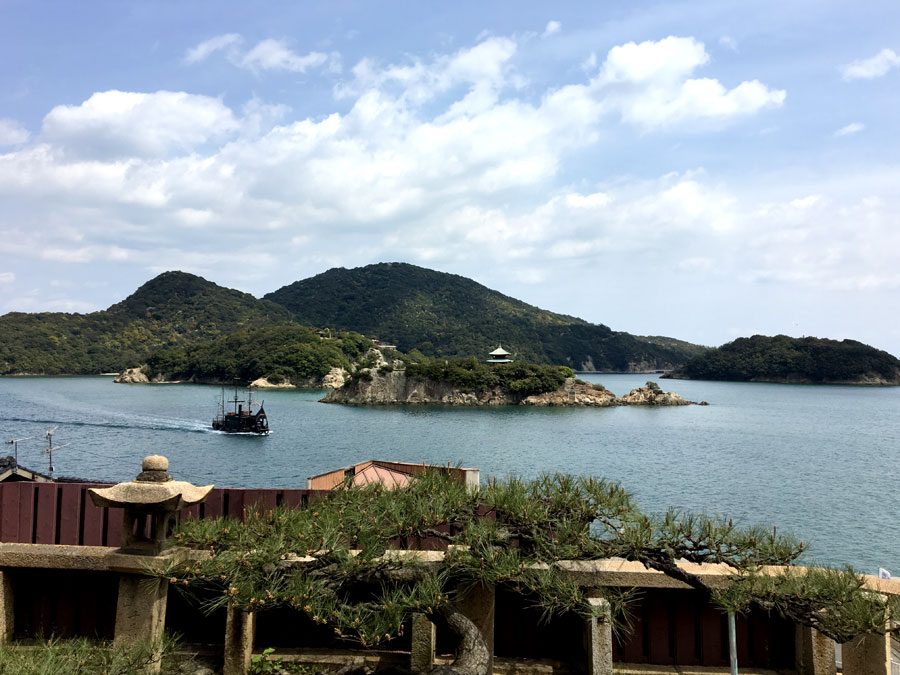
Open daily 8am to 5pm. Entry fee 200 JPY.
Ioji Temple 医王寺
For a scenic bird’s eye view of Tomonoura that is much less crowded, head west towards the inland area to Ioji Temple 医王寺. Perched on the steep hill side, you have to brave a bit of a slope to reach this temple, but it is worth the short climb as it offers unblocked views of the Tomonoura bay area and the surrounding islands Sensuijima and Bentenjima. On fine days, you can see far across the Seto Inland Sea to the rolling hills of Shikoku in the distance.
The temple itself is not very big so you can explore it quite quickly – it was founded by Shingon Buddhism founder Kobo Daishi during the Heian era as Buddhism spread across Japan. The large bell tower that faces the bay is an original structure built in 1642, while the main building was rebuilt in 1685.
If you are there in spring like I was, there is a row of sakura trees just in front of the entrance which turned out to be my favourite thing here in Tomonoura. Sit under the shade of the trees and have sakura petals fall in your hair while you take in the view – no one else was there when I visited so it was just me and freshly fallen, uncrushed pink petals that felt so soft in my hand. I tried tossing them into the wind to reenact some romantic music video – let’s just say that works better when you have additional hands to help :P
Taishiden 太子殿
For an even more spectacular view, head through the graveyard to the back of Ioji temple and climb up the stairs through the wooded area to Taishiden 太子殿, a small platform high up on the hillside marked by a little red tower. The sign claims it that the climb takes just 15 minutes, but perhaps only if you are an avid hiker – I counted 614 steps that wind their way up the slope through a thicket of trees.
You do get a magnificent view from high up that you are unlikely to find elsewhere in this area, but I was pretty winded by the time I made it up to the top. Gotta say the tranquillity and the view were definitely worth all the effort!
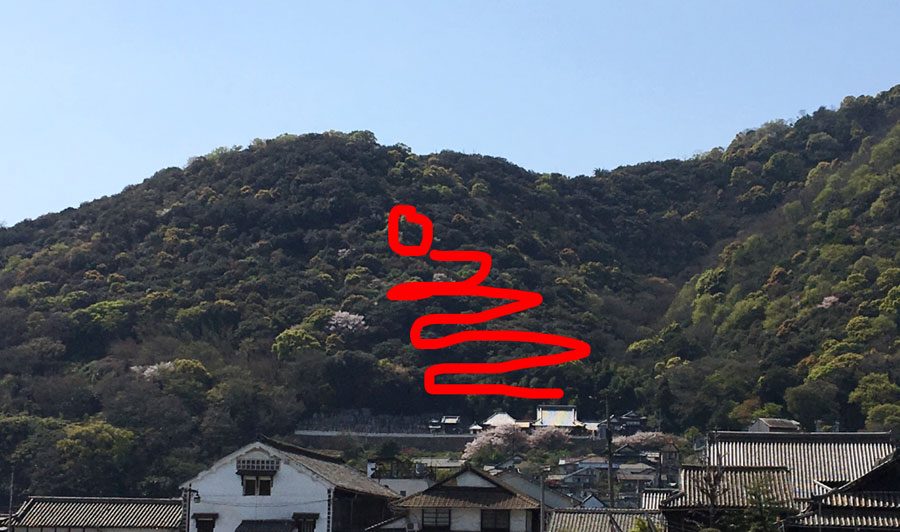

Ota Residence 太田家住宅
The rest of my time I spent wandering around the old town area, not doing very much in particular. There’s a charming feel to these quiet streets lined with traditional houses.
I visited the Ota Residence – Ota being a rather wealthy ancient merchant who had a very large traditional house where you can see how the rich folk used to live back in the day. The Ota family gained fame for producing Homeishu 保命酒, a 16-herb liquor that is supposed to have some serious healing properties (those characters translate into ‘life preservation wine’). Homeishu is still made today and produced by just 4 breweries in Tomonoura, a good unique souvenir to take home.
Joyato Lighthouse 常夜燈
I also spent a lot of time just walking along the bay and admiring the view. Something about Tomonoura’s beauty really does inspire creative folk – there were lots of artists with easels and boards sketching and painting the view.
How to get to Tomonoura
I was actually based in Onomichi, staying at the Yadocurly Guesthouse [booking.com affiliate link] in preparation for the Shimanami Kaido and took a day trip to Fukuyama, here’s how to get from Onomichi to Tomonoura:
- Train: I took the JR train from Onomichi Station to Fukukyama Station (410 JPY / S$5)
- Bus: from the bus stop right outside the entrance to Fukuyama Station, I caught a bus headed for Tomo Port or Tomoko. It took about 30 minutes (520 JPY / S$6.30)
Tomonoura is small enough to walk around quite comfortably, or you could cycle as well if you prefer.
Thanks to R who encouraged me to check out Tomonoura. She also wrote this useful guide at Japan Guide which had pretty useful and practical information about Tomonoura. You can read more about Tomonoura here.
A short version of this article appeared on JapanTravel.com where I was a photojournalist intern in 2016.
Read more of my Japan explorations during my Career Break or check out all my Japan stories for more.





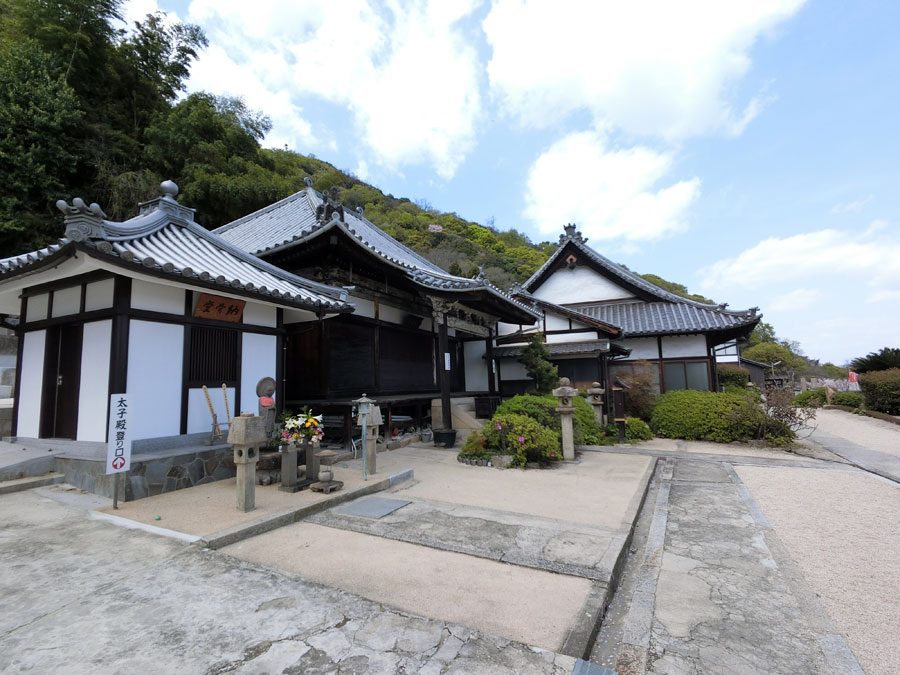

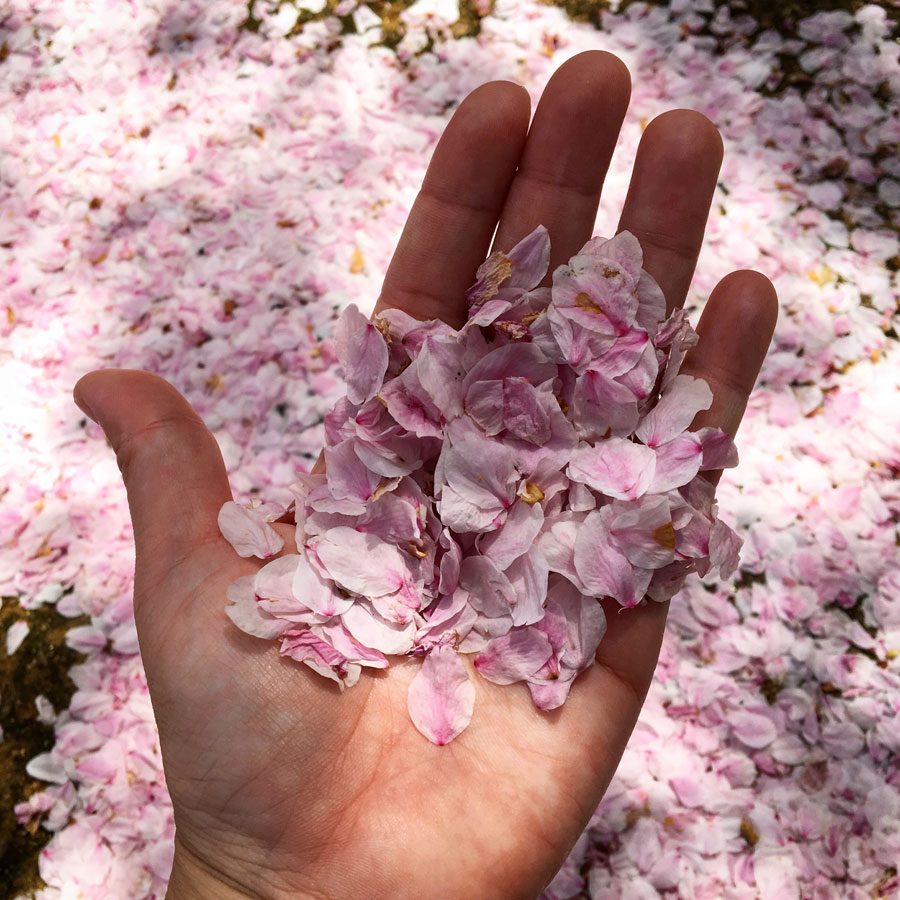


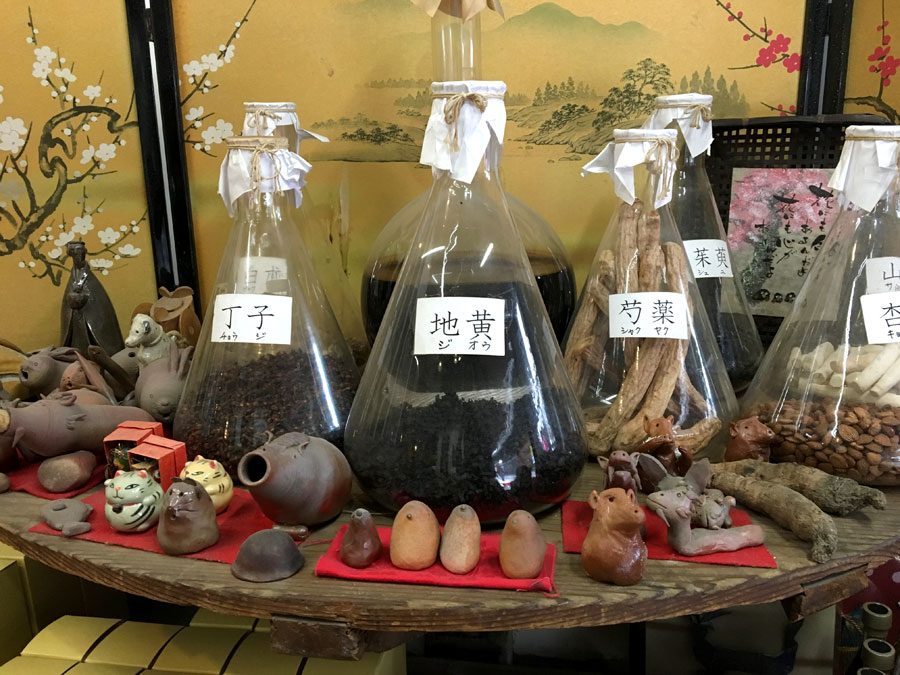

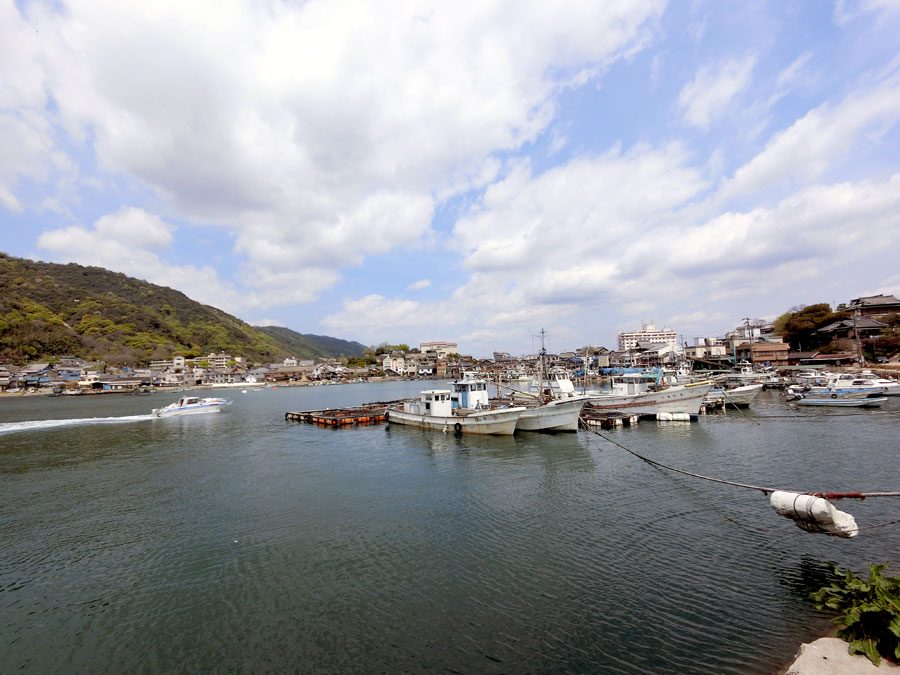
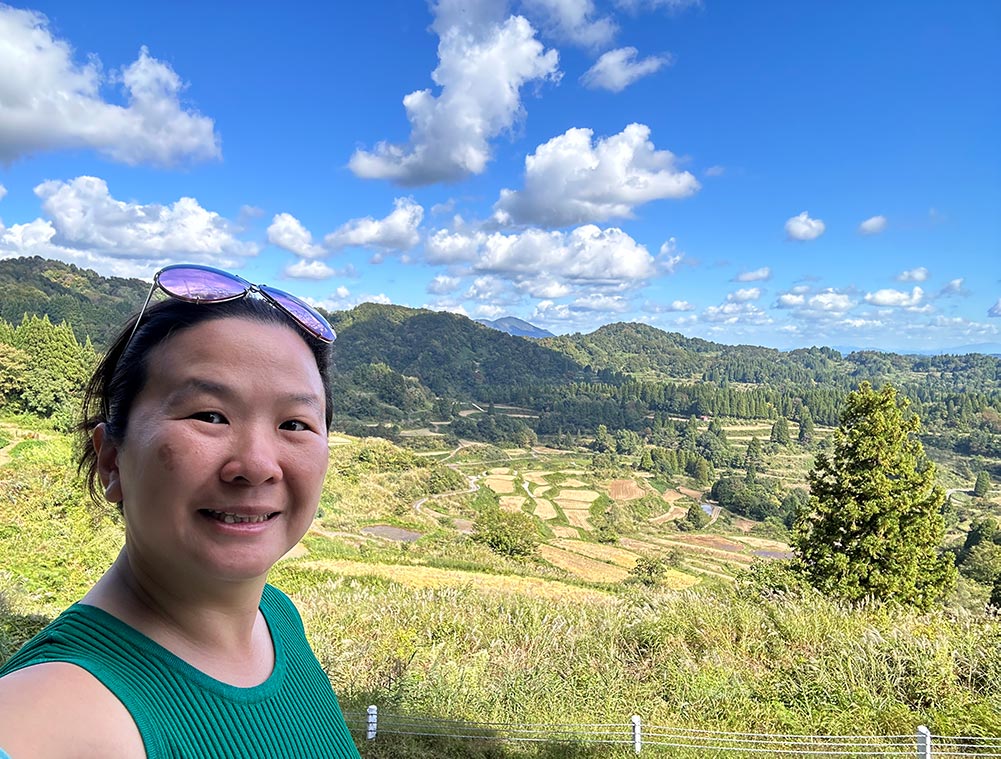
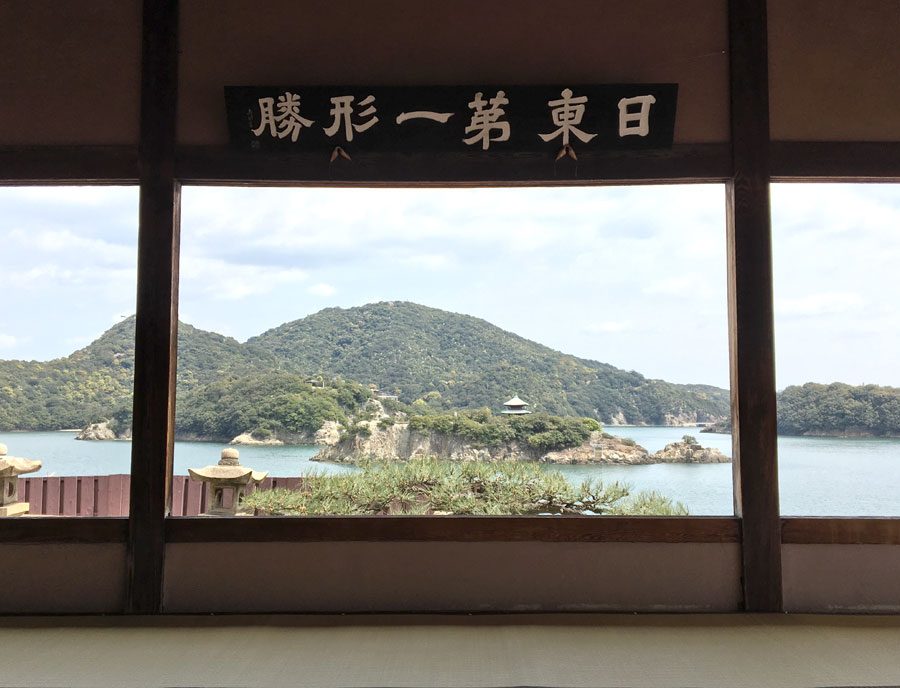
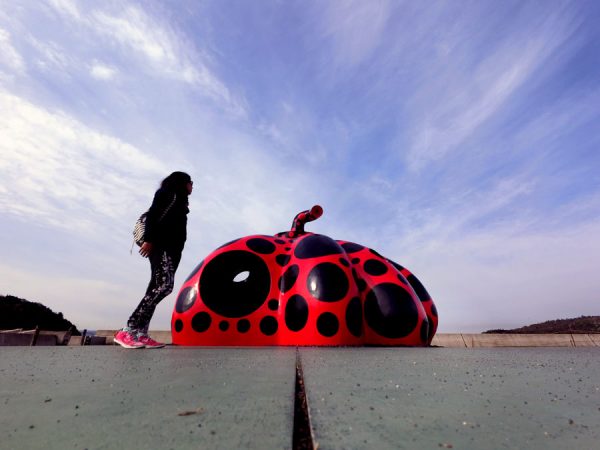
Sarah
Thursday 28th of June 2018
Thank you so much for this post! I'm now trying to see if I can fit a lot in my two days and I' m thinking I'm just going to have to make.it.work!!! It's so picturesque, I had no idea it even existed until I found this - thank you so so much!
Jaclynn Seah
Thursday 28th of June 2018
I hope you manage to squeeze it in, it's such a pretty place!